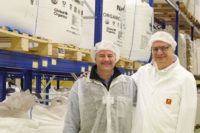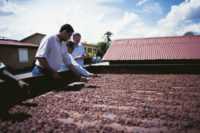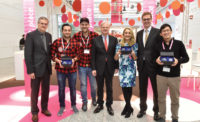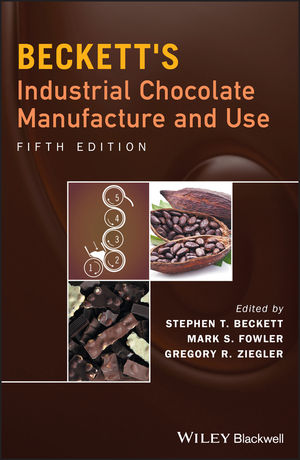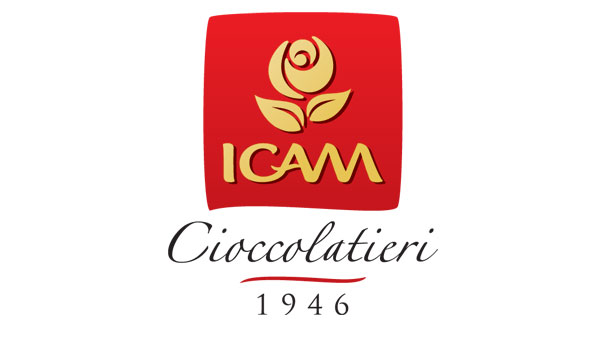ICAM: Transitioning to 3G
After investing in a multimillion dollar production facility, ICAM has turned its attention toward harnessing the talents of third generation family members.
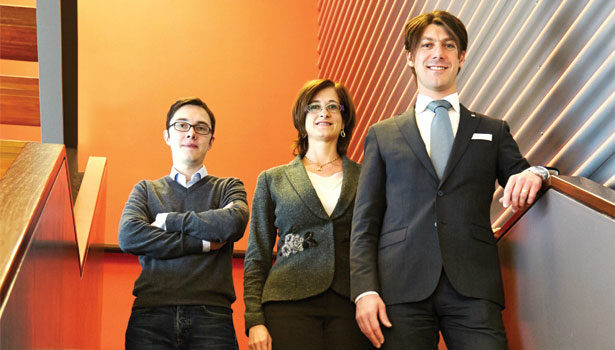
From left to right: Roberto Vanini, Sara Agostoni and Giovanni Agostoni.
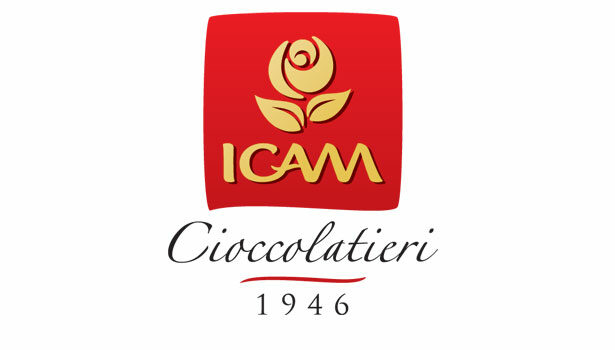
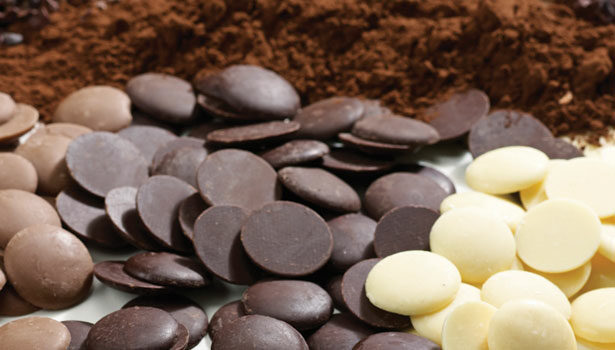
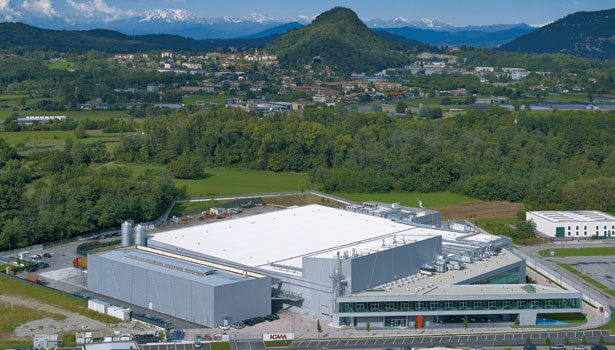
In 2010, the company invested $67 million into a greenfield facility that houses a cocoa bean receiving and storage area, state-of-the-art cocoa bean processing, chocolate and semi-finished production lines, packaging, warehousing, R&D as well as QC labs, and administrative offices.
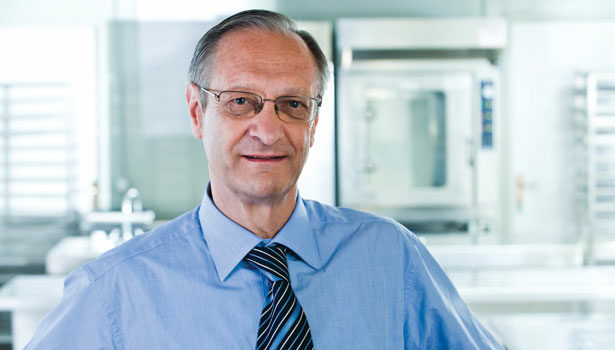
Angelo Agostoni, president of ICAM, has spent 45 years in the field, sourcing cocoa beans for the company and supporting the farmers who grow them.


Antonio Agostoni, director of quality and technology, oversees all aspects of product development as well as quality control.
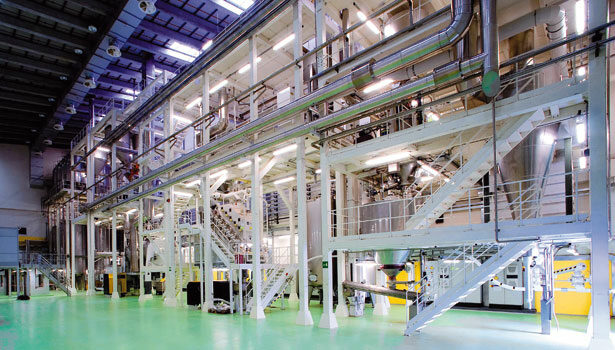
Once cocoa beans have been approved by the QC lab, they head toward a Barth/Buhler installation for roasting, winnowing, grinding and mixing.
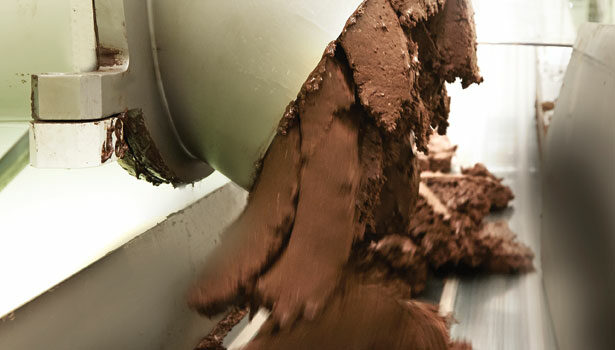
A pre-refiner sends cocoa mass toward a series of five-roll refiners for initial processing.
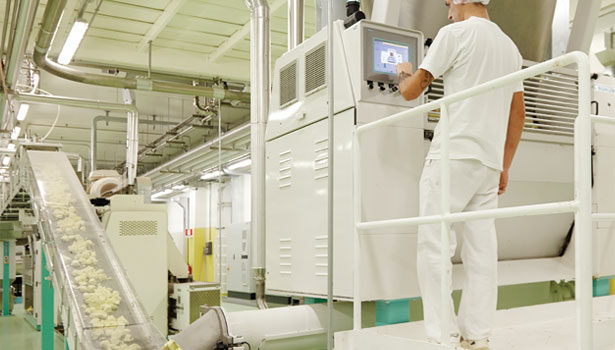
The company has seen a rise in demand for its white chocolate products. Here, a second pre-refiner sends white chocolate mass to a series of five-roll refiners.
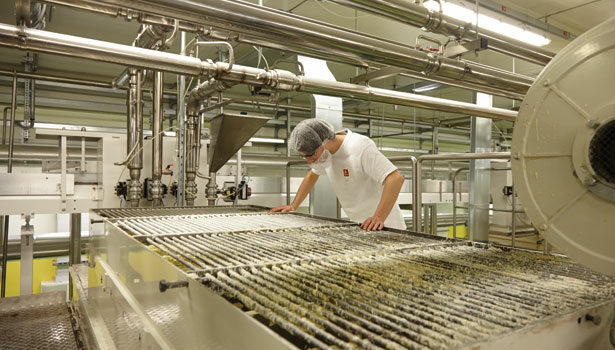
A production worker inspects conching of white chocolate. The company has seven conches that typically process chocolate from 8 to 12 hours.
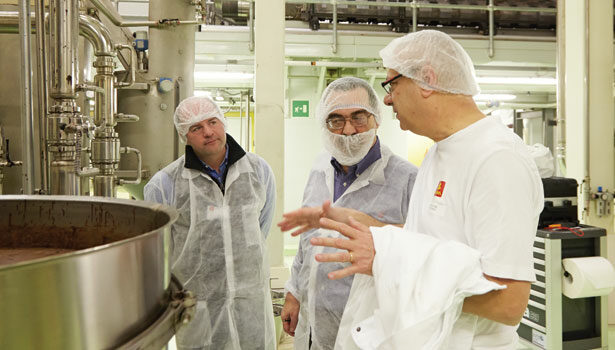
Antonio Agostoni (right), director of research and technology, explains the additional filtering of chocolate through a fine mesh to Dave Alexander (left), president of Global Organics, and Bernie Pacyniak, editor of Candy Industry.
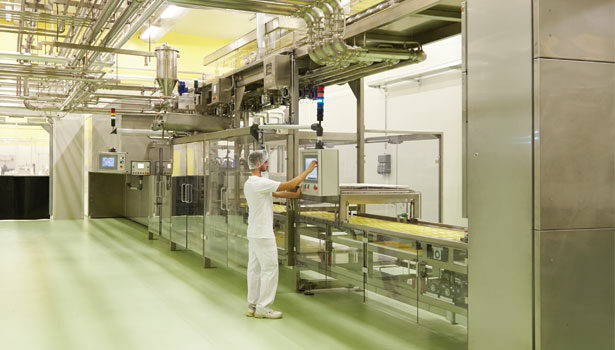
With the addition of two moulding lines in the Orsenigo facility, the company has increased its capabilities to run a wide range of products.
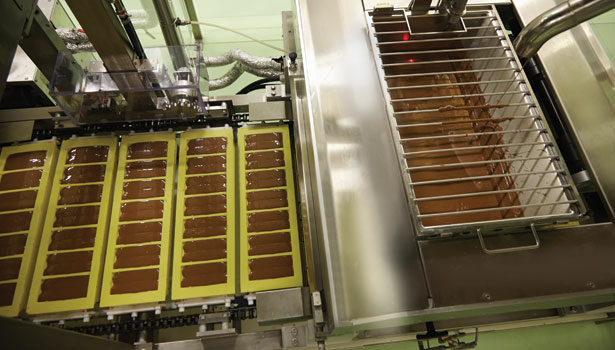
The new moulding lines are capable of running bars at a rate of 30 moulds per minute.
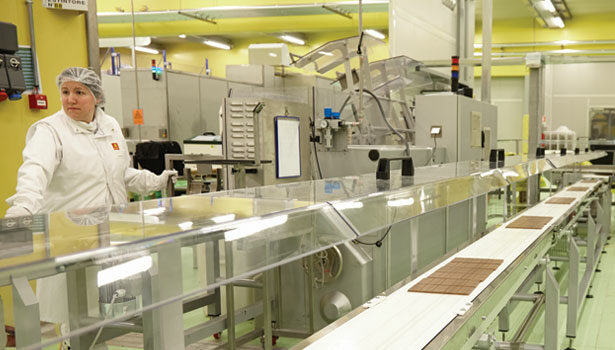
An employee checks on bars being wrapped on high-speed packaging units.

After demoulding and cooling, bars head toward high-speed packaging machines.
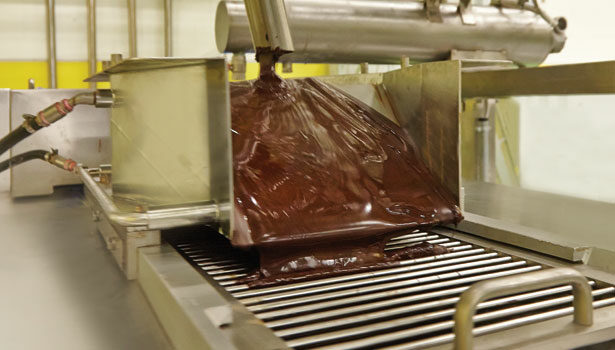
Chocolate is deposited onto a chocolate chips production line.
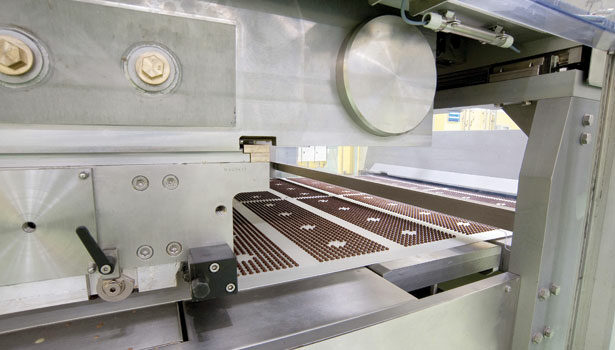
A 1.5-meter wide depositor turns out a high volume and broad range of chocolate chip couvertures.
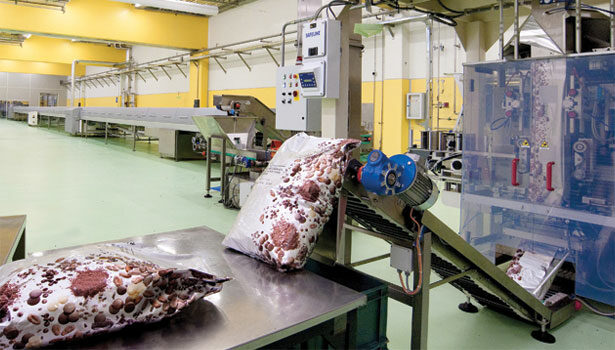
An automated bagger handles chocolate chips as they come off the line.
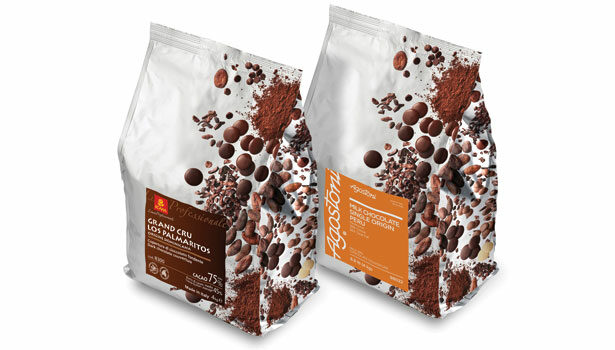
ICAM offers both semi-finished chocolate products under the ICAM Professionale and Agostoni brands as well as branded items, such as gianduja under its ICAM brands.
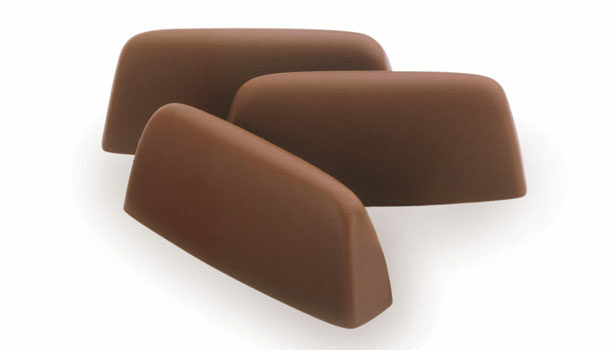





















After investing in a multi million dollar production facility, ICAM turned its attention toward harnessing the talents of third generation family members.
When the Agostoni family decided to invest $67 million for a greenfield, state-of-the-art facility in Orsenigo, Italy four years ago, they knew it was a brick-and-mortar commitment for the future. Two years ago, when the family agreed to create a special search team to select the company’s next generation of family managers, they also committed to the future — albeit in a flesh-and-blood manner.
And while orchestrating the building and equipping of a 540,000-sq.-ft. cocoa and chocolate processing facility was a complex venture, choosing the right individuals from 17 eligible thirdgeneration family members to lead the company in the coming decades demanded even more skill.
Nonetheless, Adelio Crippa, the company’s managing director and the man the family hierarchy brought in 1999 to stimulate growth, had no qualms about overseeing the process. In fact, he had already recognized the need to broaden the company’s expertise and knowledge base by introducing two non-family members into the company’s governance system in 2010 to assist Angelo and Plinio Agostoni (president and vice president, respectively) and another family member on the board of directors.
With that organizational move in place, Crippa turned his attention to ensuring a smooth family succession. Given that there were 17 thirdgeneration Agostonis and Vaninis to choose from — Silvio Agostoni and his wife Carolina Vanini, along with her brothers, started up ICAM in 1946 — the self-called “numbers man” felt confident that he and a human resources specialist could come up with the right individuals.
Each Saturday morning, the duo would interview the company’s third-generation standard-bearers. This vetting process not only helped zero in on prospective candidates, it also allowed Crippa to explain the company’s mission and operations to the younger family members.
There were, of course, guidelines. The family members had to be of age, have work experience outside of the company and have the credentials to fill a vacancy. Oh yes, and they obviously also had to want to work for the company.
It took 10 sessions and then a couple of years before all the pieces fell into place. Roberto Vanini, Urbano Vanini’s grandson, was the first to take up the challenge, leaving a university position to join the company’s quality control department.
“My degree was in chemical fermentation, so overseeing the quality of raw materials such as cocoa beans, which undergo fermentation at the origins, made sense,” he explains. “Besides, I shared my grandfather’s passion for the company.”
Moreover, Roberto was anxious to apply his theoretical work at the university into more of a hands-on environment, one that involved working with research and development, production and sales/marketing. ICAM fit the bill.
The next need was in sales and marketing. Giovanni Agostoni, Plinio Agostoni’s son, had a successful career in the telecommunications industry, having spent 10 years with a “dot.com” company servicing Italy with optical fiber.
In Giovanni’s case, it took him a year to decide to join the company. During that difficult period of decisionmaking, Giovanni came to realize that there was a “real opportunity for growth,” both for the company and for him, professionally. In addition, he saw that there was a chance to “combine the values of a family company,” with the expertise and engagement of a multinational organization.
The last piece of the puzzle fell into place when Sara Agostoni, Angelo Agostoni’s daughter, decided to join the company. She, too, had 10 years of experience, in this instance, in purchasing. Ironically, both companies that she worked for — neither of which involved confections or food — were family-run.
Thus, she certainly understood the nuances of family-run businesses. But more importantly, Sara had honed her skills in introducing quality and cost-saving systems in the procurement process. Given her background, and the fact that ICAM was in the throes of consolidating purchasing responsibilities amongst various departments into one unified position, Sara and ICAM looked to be a good match. Nonetheless, it also took her some time to decide. In the end, it came down to her “thinking about the future,” not only hers, but ICAM’s as well.
Fast forward to 2014 and the young trio feel both comfortable as well as challenged.
“We must have new ideas to compete,” says Roberto. “The market is asking us for something new. Everyone sells quality today; it’s too easy to say you produce good quality chocolate. Our goal is to deliver innovative products, something incredible. That’s the key.”
In the last three years, Roberto has worked on 2,500 new product launches. Granted, some of them were limited to changing pack sizes and packaging. Nonetheless, many others involved new recipes involving cocoa liquors and chocolates, new taste profiles and inclusions.
“We carry seven different kinds of salts,” laments Sara. “Everything from sea salt to the Maldon salt to Fleur de Sel.” And while ICAM’s new purchasing manager may feint annoyance at Roberto’s request, she understands the importance of ensuring quality and variety of all the ingredients, regardless of the quantity. Each client gets its own tailormade unique product while adhering to cost parameters and specifications.
No surprise then that she’s already begun revamping the purchasing process, working with the R&D department to see where and what is purchased. As one can imagine, it’s been a long and challenging process to chose and to validate high quality suppliers.
Indeed, for some ingredients, ICAM used to only have one supplier. Even when that company is an excellent partner, the situation can be a bit risky, Sara points out. Today ICAM has three more reliable suppliers to choose from as backups for all critical ingredients, thereby precluding any shortages while ensuring a fair price.
But Sara hasn’t been the only one implementing changes at the company. As expected, Giovanni has also been busy reorganizing the company’s sales and marketing department.
Today, within Italy, there are distinct managers overseeing three different sectors and areas: retail, ingredients/foodservice and private label. With regards to exports, there are separate managers for different regions, such as North America, Asia and Middle East, Northern Europe, Central, East and Southern Europe. All these moves reflect a market-driven orientation instead of internal, familialbased organizational silos.
Last year, the company posted €120 million in sales, a 10 percent gain from 2013. Giovanni expects a double-digit increase in sales this year, pushing total revenue to more than €130 million. Such optimism stems, in part, from the groundwork laid by the second generation, and, in part, from changes being implemented by the third generation.
First, it’s hard to find companies such as ICAM that devote so much attention to the sourcing of cocoa beans. That legacy, of course, has been forged by Angelo Agostoni, the company’s president. With more than 45 years of being in the field, working with and for cocoa farmers, Angelo has carefully nurtured the company’s reputation of not only securing the finest cocoa beans, but of supporting farmers in every way possible.
Well before sustainability became a buzz word for multinationals as well as artisans, Angelo has pursued a unique approach to working with cocoa farmers to help improve quality and yield.
“All the activities we have developed related to helping farmers continue to change and evolve,” he explains. “We do not have a rigid, standardized approach to different origins. We are prepared to evolve with the growers, adapting different strategies to different groups.”
For example, in the 1980s, it was Angelo who initiated technical and financial support programs within Panama, Honduras and Guatemala. He expanded his efforts into the Dominican Republic and Peru during the 1990s, trailblazing the conversion of cocoa farms into organic certified producers. (See Candy Industry, Nov. 2010 issue).
This legacy continues as the company expands and evolves its efforts, supporting and financing initiatives with farmers to improve quality and yields. Not only has Angelo spearheaded the introduction of native fine-flavor cocoa beans in Central and South America, the company has also shared its experi- Ence in Africa, and launched a new initiative in Uganda.
For Angelo, the goal is to have all of ICAM’s cocoa beans sourced from partners directly in the origins. And despite a common misconception that one can’t merge quality with high yields, he points out that the opposite is true.
“Fifty years ago some Latin American countries were widely abandoned with regards to cocoa agriculture,” Angelo says. “There was just marginal activity in many countries. In a way, this allowed many of the plantations to quickly convert to growing organic beans since none of the fields had been treated with pesticides. Thanks to ongoing projects, our work has been extremely beneficial to both ICAM and the farmers. We’ve seen incredible improvement in quality and yield. In Peru, the best farmers from the cooperatives that adhere to ICAM guidelines have achieved yields of one ton per hectare.”
And he is convinced that more progress can be made.
“Based on all the data I’ve chewed through during the years, there’s great potential for farmers to multiply their income by seven times, given the right support, which includes agricultural techniques, access to the right tools, planting of the right tree,” Angelo says.
ICAM’s Equal Partner Program reflects that commitment. It is an “ethos” that goes beyond mere certification, one that sets the company apart in delivering a broad range of quality products from its new facility in Orsenigo.
The new plant also reflects another key element in the growth of the company. Upon completing the 540,000-sq.- ft. Facility in 2010, the company gradually moved existing equipment from its older plant in Lecco, Italy. It also introduced new equipment as needed. Four years ago the company had one Buhler refiner, two Buhler conches and one Duyvis cocoa press in Orsenigo. Today, there are seven conches, four refiners and two pre-refiners as well as an additional cocoa press — all of which were installed between 2011 and 2012. Two moulding lines (Carle & Montanari) were installed between September 2012 and June 2013.
In addition, the company has a dedicated moulding line for couvertures and drops, which was the first to be installed in Orsenigo. It also has five additional moulding lines for bars and pralines.
Although there’s still room for additional equipment, be it another prerefiner, refiner, conche or moulding/ chip line, the main focus now is on boosting efficiency and reducing cost, says Antonio Agostoni, director of quality and technology.
That effort, however, dovetails with the company’s customer-centric philosophy, one that takes into account three different business channels: ingredients/foodservice; private label and branded. Although ICAM had — in the past — saw its revenue stream equally divided among the three sectors, the completion of the new plant stimulated growth of the company’s ingredients/foodservice offerings. “Currently, semi-finished products, which includes ingredients and foodservice, account for 55 percent of our output, while finished products, which comprise bars, pralines and seasonal items, account for 45 percent,” Crippa says.
“Our strategic plan is to drive growth of all our products in order to return to having our revenues divided up evenly between semi-finished products, private label and branded,” he adds. “But after we completed the new facility, it was easier to pursue semi-finished products until we completed moving production lines from Lecco to Orsenigo.”
It was a natural development, given the company’s stringent cocoa sourcing and quality control standards. Beans arriving from Genoa, Italy are trucked to Orsenigo for inspection and Storage. Prior to use, a sampling of beans are taken from every bag. A 9-kilogram sample of a specific lot is sent to the QC lab, where they are examined and tested.
This same kind of testing applies to chocolate liquor production, whereby beans are roasted, ground and processed into cocoa liquor within the lab before approval is given for either release and/or further processing.
“Today, we are seeing much more sophisticated requests from customers regarding cocoa beans, cocoa liquor and chocolate,” explains Antonio. “Customers go into detail regarding the type of beans, type of roasting, conching, etc.”
Fortunately, for ICAM, the company’s expertise and experience becomes plainly evident during such discussions. As Antonio points out, “We have more than 50 cocoa liquor recipes to choose from.” Moreover, the long-time head of quality and technology can tweak virtually any recipe to a customer’s specifications. As a result, the company prides itself on presenting innovations to both customers as well as the marketplace.
Although well recognized for its dark and milk chocolate offerings, ICAM has seen quite a surge for its white chocolate products during the past few years. One of the reasons stems from its ability to produce its own cocoa butter from quality cocoa beans, thereby ensuring the highest quality. The other stems from its milk powder.
“We have different recipes available, ranging from those using a standard milk powder to ones using a block milk powder or a high free fat or crumb milk powder,” Antonio explains. “The flavor obtained from each of them delivers a different particular result, albeit some providing a much richer and intenser flavor.”
In addition to capability, the company prides itself on flexibility. Those two qualities have attracted several retailers as well as other midsize and larger manufacturers to turn to ICAM for their private-label or contract-manufactured chocolates.
In the ingredients market, ICAM has earned a reputation as a worldwide premium producer that can deliver customized products while in the gourmet sector it continues to impress chefs and pastry chefs with its wide product range. In addition, the company maintains close personal relationships as well as offers professional counseling to the chefs it works with. As for organic products, ICAM owns the category. The company’s also very active in contract manufacturing.
“We are the leader in the Italian private-label chocolate bar category,” says Giovanni. Currently, private label products account for 22 percent of the total retail landscape in Italy. Analysts foresee that growing to 40 percent. As it stands, the leading Italian retailers are already up to 30 percent.
“In the past, private-label products were viewed as followers of the market leader,” explains Giovanni. “Today, more and more retailers want their private-label products to be unique and innovative.
“Everyone is looking at introducing more premium products into their mix, even dicounters,” he says. “So what you’re seeing is that the quality of products being sold is increasing, across all channels.”
That quality is also evident in the company’s branded product line, which includes a broad range of bars and pralines. Unfortunately, Italy’s economic woes have created a difficult environment for all confectioners with brands in the country.
As a result, ICAM’s branded sales in Italy were flat. That’s not to say the company doesn’t have plans to change that.
“We’ll be launching a new line of bars and pralines in October, featuring a totally different cocoa origin, one that’s from a lost part of the world,” Giovanni says. “These are totally different recipes and will present flavors not currently in the market.”
But that’s as much as Giovanni could share, noting it’s too early to get into more detail. Even Antonio refused to divulge any information, except to say that the development of the new line has been his “most interesting project” to date.
Of course, the new line will reflect ICAM’s core values and concepts, products that are ethically sourced and lovingly produced.
As Plinio notes, chocolate is becoming like wine. In ICAM’s we’re we’case, the company looks to be both the vinter and the sommelier.
At-a-Glance: ICAM Headquarters: Lecco, Italy |
Looking for a reprint of this article?
From high-res PDFs to custom plaques, order your copy today!





